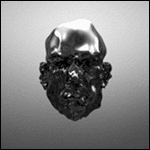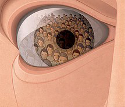|
rizuhbull posted:So Lasik has no effect? At your age it's highly unlikely you'd lose close vision ability. If someone in your situation was in their mid to late-40s or older there's a much higher chance they'd need reading glasses after LASIK.
|
|
|
|

|
| # ? May 17, 2024 19:20 |
|
rizuhbull posted:So Lasik has no effect? Metal Geir Skogul posted:Gather round, children, for a very quick and dirty explanation of Eyes, Glasses, and You.
|
|
|
|
I have found if you have type 1 diabetes lasik is a no go. I have gone to three different doctors over the past few years and all of them say don't bother since I am diabetic.
|
|
|
|
Thanks Anyone recommend a place in the Tampa-to-Naples area?
|
|
|
|
Jumping into Lasik with my eyes closed (pun intended). I'm setup for a PRK advanced custom wave front surgery in Calgary, AB 2 weeks from now. Since it looks like for the first 3 days are "do nothing with your eyes", what are things I can do to keep busy besides podcasts/audio books?
|
|
|
|
|
Chillyrabbit posted:Jumping into Lasik with my eyes closed (pun intended). They should give you a sedative to take immediately following surgery - if I were you, I'd plan to dope myself up for as much of those 3 days as possible. One of those days will (almost certainly) be marked by significant discomfort. That's your cornea starting to regenerate from the PRK, since it is procedurally different from LASIK. First 24 hours, use the shields they give you, take a sedative, black out the room and try to sleep as much as possible. You will be tempted to rub your eyes, don't do it. When I had PRK done (right eye only, left eye was LASIK), I found myself hugely photophobic at first. It came and went - some days were fine, some days were rough, and there were a handful of times when it seemed to fluctuate throughout the day. That was gone within 30 days, which seems to be fairly typical - some people healed faster, some slower, some had more discomfort than others. As for activities - try to stay in dark-ish rooms as much as possible. Have friends over, play board games, but nothing that requires you to focus on close objects (no PC, no reading, etc for 3 days). Even TV wasn't really doable for me for the first week - and it's likely your vision will be blurry for some time, with some days better than others similar to the photophobia. I can tell you about my recovery, after-care, etc. if you want, but the biggest thing for activities is just to not depend on having 100% visual acuity, and not to focus on anything close up. And sleep as much as possible!
|
|
|
|
Chillyrabbit posted:Jumping into Lasik with my eyes closed (pun intended). If prk is anything like lasik you should be fine. Your vision will be mostly restored by then. The biggest thing is making sure you don't rub your eyes (as tempting as it will be) and make sure nothing gets in your eyes. They should give you some kind of protective lenses to cover them but if not you could always wear safety glasses. Just don't do anything too straining for the eyes such as playing video games too long or staring into the sun.
|
|
|
|
snowparty posted:If prk is anything like lasik you should be fine. Your vision will be mostly restored by then. The biggest thing is making sure you don't rub your eyes (as tempting as it will be) and make sure nothing gets in your eyes. They should give you some kind of protective lenses to cover them but if not you could always wear safety glasses. Just don't do anything too straining for the eyes such as playing video games too long or staring into the sun. PRK is not like LASIK in my experience, and I did both. LASIK was effectively healed overnight and I was 100% fine. PRK took about a month before my vision was corrected, and I had no discomfort in that eye. Edit: Don't get me wrong, the end result is fantastic for PRK and it is completely worth it. But don't sell it as if it's the same thing as LASIK, it's a different procedure and expectations should be set accordingly.
|
|
|
|
Shooting Blanks posted:PRK is not like LASIK in my experience, and I did both. LASIK was effectively healed overnight and I was 100% fine. PRK took about a month before my vision was corrected, and I had no discomfort in that eye. Yea, your vision is mostly back to normal in 2-3 days with LASIK and hosed for a couple weeks with PRK. I also had both.
|
|
|
|
Just checking in with my PRK experience so far. Did the surgery on thursday, basically did nothing until sunday before I could do simple things not involving reading as everything is a little blurry from the contact lenses they put in to protect my eyes. Ran out of podcasts on Saturday but luckily I could get the harry potter audio books on youtube playing. My advice prepare more audio stuff than you think you need. Monday did a check up and everything looks fine so far, next appointment should be to take the lenses out on wednesday. Right now my vision is approximately if I was wearing my normal contacts, so a big improvement from before and its not done healing. My vision before was -2.75 in my left -4.75 in my right with glasses, contacts were -1.75 left, and -3.50 in my right plus some minor astigmatism.
|
|
|
|
|
Expect it to fluctuate for a few weeks. There were days when my vision. Was great, but then a day or two later it would be blurry again. To be fair my uncorrected vision was much worse than yours, but it took about a month before it really stabilized, maybe a bit longer. Glad you got it done, good luck healing up!
|
|
|
|
Make sure to take your steroids as directed, and make sure they "soak in". After two weeks out of work (my work involves driving and high voltage outdoor work), we got hit by a hurricane and I worked about a week straight, 3 weeks post-prk. I tried to keep up but was often in a hurry putting in my drops, and ended up having to use the steroid drops for longer than planned due to corneal hazing, which set back my healing time. Took 2-3 months before I was getting really comfortable with my vision, and there seems to be a slow and steady improvement to night vision even up to now. Anyhow, I'm now 6 months post prk, and pretty dang happy. From -4.00, -5.00 to 20/15 and 20/25 (although my right eye seems worse than that). Reflective or backlit surfaces kinda screw with me, get a double vision effect (road signs, center lane markers, vehicle tail lights). I don't have the halo effect from oncoming headlights that most people describe, though. Daytime vision is great, nighttime is very good except for the issues I described. At my 6 month visit, doc said my corneas looked great. Scheduled me for a 1.5yr post-op full eye exam, wouldn't surprise me if I'm due for a follow up surgery. And that's fine, I feel like my right eye needs some more help.
|
|
|
|
Just an update on my PRK experience so far. Did the Surgery March 9 on the 1 week check up my left contact lens fell out and they took out my right one, eyes still felt really sensitive and weird but it passed. I am now an eye dropper pro, since before I either blink or miss the eye entirely requiring me to use more drops then normal, but now I can do it right. My vision is basically if I was wearing my contact lenses right now so corrected up to good livable levels (I don't know the exact measurements but its good enough to live with). I haven't done a lot of driving at night or going out but I think the star bursts and halos are normal, not any worse than before I think which was minor star bursting and a minor halo glow which might just be the lights themselves. March 29 My right eye seems to be a bit worse but it started worse so hopefully it fixes itself in the future. My experience so far is A++ besides the 3 days of dark agony.
|
|
|
|
|
I know this has probably been asked, but how much could I expect to pay for these procedures? Lasik/PRK. I saw someone who was quite smart, they had an FSA with a grace period, and scheduled their procedure in said grace period, allowing both plans to pay for the whole thing, tax free.
|
|
|
|
The cost from what I've seen, depends wildly on location and whether it includes a second (touch-up as it's usually called) surgery that you may not need, in the original price. The more they spend on advertising, the higher the price it seems to me. ~$3k seems to be a median, based only on my own reckoning. When I called around before making an appointment, the offices I spoke with were all perfectly willing to quote me over the phone.
|
|
|
|
I am going to get my laser eyes installed on Thursday afternoon, and I am super excited. $4600 for both eyes together at a place called Eye Lasik Austin. Getting wavefront custom intralasik. It was the only place that my vision insurance partially pays for and I was skeptical due to never having heard of them, and their Yelp rating is like 2.5 stars. As it turns out, the only negative reviews are from people who didn't like the secretary but see great with no problems. Also, 4 of my coworkers have gone there, and they all loved the poo poo out of it. So far I have: A bottle of Advil More comfortable tinted goggles to sleep in A big box of preservative-free artificial tears Two books from Audible to listen to A girlfriend planning to make dinner that night For those that have already gone through it, anything else that I should have prepped to make my life for that first day a little easier?
|
|
|
DelphiAegis posted:I know this has probably been asked, but how much could I expect to pay for these procedures? Lasik/PRK. I paid $3900 CAD for a PRK Advance Custom wavefront at Lasik MD Calgary. I got the touch up add-on for $150/eye, no discounts from affiliations. Oddly enough being a member of goodlife fitness would have saved me $100. But I was already signed up with a different gym so no go there. Obviously costs vary, my prescription via glasses before the surgery was -2.75 Left eye and -3.75 Right so not too terrible. Doom Rooster posted:
Lasik or PRK? PRK I would advise more audio media since my experience was basically no looking at anything for 3 days.
|
|
|
|
|
Lasik. The doctor said I should be totally good to drive myself to the followup appointment the next morning.
|
|
|
|
Could someone summarize the differences among the eye surgery techniques? I thought there was a previous post that did just that but I can't find it.
|
|
|
|
In a nutshell, by a patient and not a doctor:
Also, as long as we're talking about the local establishments, gently caress LASIK MD in Calgary. They told me I was a candidate for PRK, I waited around a couple months till surgery date, and then only after I came in that morning did they tell me my corneas were too thin and the surgeon thought it was too risky. Later I went to Gimbel Eye Center to get ICLs, and Dr. Gimbel told me I was never even close to being an acceptable candidate for PRK. So I don't blame LASIK MD for making the call, but that really suggests to me that the initial assessment they do is basically all a marketing exercise and that the surgeon doesn't actually look till day of, which I consider extremely unprofessional.
|
|
|
|
Trip report: Went in to Eye LASIK Austin yesterday for custom wavefront iLASIK at 12:40pm, got my valium and some drops. Walked into the laser room at 1:40pm, was in the car be driven home at 1:55pm. Got home, 1 medicated drop in each eye, took a nap for a few hours, listened to some TV, opened my eyes at 8:00pm and could see pretty great. One more drop in each eye and went to bed around 11:00pm. Doctor and assistant were awesome. Very calmly talked me through every step. No pain whatsoever. Up until going to sleep last night, I just had a little bit of scratchy "something in my eye" feeling. Woke up this morning and it was gone. I feel perfect. As far as vision, I see pretty great. It is taking a fraction of a second to focus on something when I look at it, and it's only super clear in the middle of my direct view. Peripheral vision is a little blurry. I was told to expect this, and that it would go away as my eye goes back to 100% normal shape. They also told me my vision would continue to get clearer over the next few weeks, which is cool, because I am already seeing as good or better than I ever did with glasses. Already super happy. Total cost was $4750 including consultation, the medicated drops, pre op appointment with my optometrist, everything on the day of the surgery, and today's post-op appointment with my optometrist. fake edit: I keep reaching for my glasses. Tried to take them off before hopping in the shower. Reached for them on the nightstand when I woke up.
|
|
|
|
How much post op treatment are they recommending? Edit: Consultation, not treatment.
|
|
|
|
Doom Rooster posted:Tried to take [my glasses] off before hopping in the shower. Took me like a month to kick that habit.
|
|
|
|
Shooting Blanks posted:How much post op treatment are they recommending? 1 day, 1 week, 1 month, every 6 months for 2 years, yearly thereafter. PittTheElder posted:Took me like a month to kick that habit. GDI. I am up to 9 or 10 attempts to take off/adjust my nonexistent glasses so far today.
|
|
|
PittTheElder posted:In a nutshell, by a patient and not a doctor: Huh wish I knew about that, might have shaped my decision to try out Gimbel, plus I realize their office is like right next to where I live. Curse you effective advertising!
|
|
|
|
|
PittTheElder posted:PRK - instead of cutting a flap to expose the stroma, the outer layer of the eye is removed (I'm not sure how this is actually done), then the same laser ablation process is used to reshape the eye. The surgeon scrubs off with a small electric brush after you get some anesthetic eyedrops. Disconcerting, but painless.
|
|
|
|
It's kinda shocking just how effective those anaesthetic drops are. Because my lenses had to be installed at a certain angle to counter the astigmatism right, my surgeon pulled out a (one-use sanitary) marker and drew a line along the required angle on my eye. Didn't feel a thing.
|
|
|
|
ibntumart posted:The surgeon scrubs off with a small electric brush after you get some anesthetic eyedrops. Disconcerting, but painless. Painless at the moment. Wait until later...
|
|
|
|
Listening to what is done during the procedure is so cringy.
|
|
|
|
PittTheElder posted:In a nutshell, by a patient and not a doctor: I now have enough money saved up to fix my eyes and I really want to do it. I am scared shitless about it though since Murphy's Law has it out for me. I am curious though if ICLs have the same drawbacks as normal contact lenses (barring dry eye/discomfort issues)? For me everything gets darker and halos when I put contacts in and I've never had a contact lens that didn't feel like I had an eyelash in my eye. First time I was forced to night drive was a VERY scary experience. I'm worried I'm gonna spend thousands of dollars and still end up with halos and night vision problems, where with glasses I don't have any problems other than them being coke bottles. I also seem to be on that borderline for lasik at -8.5-ish diopter so there is worries on that as well. I can't tell if what I'm reading online is just marketing shtick or real cause it seems like everyone has got different answers.
|
|
|
|
I was running -8.5 and -8.75 diopters if memory serves; in the 8-9 ballpark for sure. I do get night halos, but I think that has more to do with light leaking through my iridotomies (IANOD, do not quote me on that), which may not be required if you wanted to get ICLs done today. The halos were kinda rough for the first week or so, especially when night driving (I basically don't notice them otherwise), but I've adjusted and it's fine now. Despite the fact that I compare them to permanent contact lenses because they're both plastic inserts, they don't feel similar to contacts at all. I can't feel them at all for one thing, and I've never experienced issues with dryness past the first 3 weeks. Certainly my vision is better than my contacts ever were, but I don't know how much of that comes from the benefit of having custom made ICLs rather than disposable daily contacts. I have zero regrets about it. The biggest complaint I have about my eyes is how generally photo-sensitive I am; if it's sunny and snowy, the brightness is tough to deal with and I get very squinty and my eyes tire right out, but the solution is just "put sunglasses on", which is probably what any eye doctor would tell anyone to do anyway. I'm also unwilling to attribute that entirely to my ICLs, I had transitions glasses for 10 years before I got the surgery done, so maybe my eyes just got used to having perma-sunglasses. Semi-related: watch this terrifying video of the actual surgery (my surgeon but not my eyes) just for funsies! https://www.youtube.com/watch?v=iQVYQl9XQmc PittTheElder fucked around with this message at 01:45 on Apr 12, 2017 |
|
|
|
That certainly puts me a little at ease. So you still get halos and you just ignore them, or are they gone? Also thank you for giving a price. I couldn't find one for icl's anywhere. Though it seems like I'm the only person on the internet to have poorer night vision with contacts since I can't find mention of it anywhere.
|
|
|
|
Still have halos, I ignore 'em, they don't really effect the quality of my vision. The halos actually go away if I squint, but I never really feel the need to do so beyond personal curiousity as to why that is.
|
|
|
|
What OTC eye drops did y'alls Drs recommend for long term use? I had it written down somewhere and can't find it. I don't really have dry eye, but I've discovered that it's really pretty cool to wet my eyes first thing in the morning.
|
|
|
|
angryrobots posted:What OTC eye drops did y'alls Drs recommend for long term use? I had it written down somewhere and can't find it. For me, Refresh Optive Preservative Free. The preservative free part is what's important, there are other brands that will also work. These come in single use containers and are considerably more expensive than regular saline rewetting drops. This is the specific product: http://www.refreshbrand.com/Products/optive-sensitive Edit: At first it was 2-3 times per day per eye. At this point it's on an as-needed basis (though once a day is recommended).
|
|
|
angryrobots posted:What OTC eye drops did y'alls Drs recommend for long term use? I had it written down somewhere and can't find it. I use Systane ultra as I can get them in a bulk pack at costco, $22 CAD for 3x10 mL bottles.
|
|
|
|
|
I got a box of oasis tears. Bought another. They were rediculously expensive at ~$30 for 30 droppers. Ended up picking these up later which were fine. http://www.bjs.com/refresh-plus-eye-drops--1---ct-----1-fl--oz-.product.21822 Stopped needing drops before these ran out.
|
|
|
|
I just got LASIK two days ago and so far the results are exceeding my expectations. When I went in for my initial pre-screen back in February, they said they could only correct me to about -1 diopter because I had a high prescription (-8.5) and a thinner than average cornea. I tried some contact lenses that were under-prescribed to -1 diopter and after several months of thinking about it, decided it would still be worth it. I didn't actually meet the surgeon until the day of surgery, and he seemed disappointed that I wasn't getting a full correction. I had my 1 day post-op checkup yesterday and I have 20/20 vision.
|
|
|
|
I got LASIK about a month ago and it has been unbelievable. My prescription wasn't that bad other than one eye having a bit of an astigmatism. I had it done late Friday afternoon, slept until early Saturday morning, and while it took an hour or two for my eyes to calm down and adjust, I could see really well less than 24 hours after the surgery. Was very sensitive to light but could use a computer. The Monday after I went to my follow-up and had 20/10 vision. A month later my eyes are pretty well healed up. Not super dry but I try to put in drops once an hour or two and use the gel drops before I go to bed and right when I wake up. I think it's honestly taken my brain longer to adjust than it has taken my eyes to adjust. I make sure to keep sunglasses handy now because sun still seems pretty bright. The procedure and the recovery were both a breeze. I highly recommend anyone who possible can get LASIK.
|
|
|
|

|
| # ? May 17, 2024 19:20 |
|
I want to do Lasik or another surgical correction this year. Could people that have done it 2 5 or 10 years ago share some stories? I'm wary of 100% of post operation stories being positive because of the initial excitement.
|
|
|



















 Yes, it's like a lava lamp.
Yes, it's like a lava lamp.






